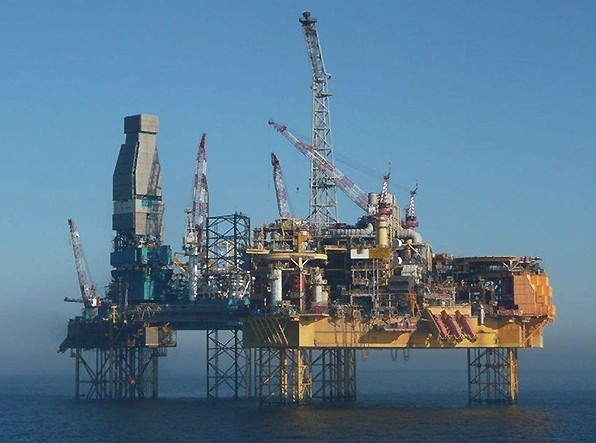
Oil giant Total could be facing a £1.4billion bill to repair wells in the Elgin-Franklin field, it has emerged.
A corrosive drilling fluid is now believed to be to blame for the 51-day gas leak at Elgin platform last year.
Experts have warned an extensive programme of repairs could be needed across the North Sea in light of emerging evidence.
The French energy giant is planning to “kill” and replace 10 other wells in the area.
Yesterday, it was claimed that project could cost hundreds of millions of pounds.
Reuters claimed last night that the process will take about three years to complete, and the replacement cost of each well is about £140million.
The corrosive fluids implicated in the leak at Total’s Elgin field, such as calcium bromide, are commonly used in such deep-sea wells, and experts fear a recurrence as operators, under pressure to offset declining output from conventional reservoirs, turn to deeper, hotter and higher-pressure fields.
John Downs, a chemical engineer who runs his own consultancy group, said yesterday that an extensive well repair programme may be needed if the stress corrosion cracking caused by bromide brine in Elgin is also happening elsewhere.
There had been fears that Shell’s neighbouring Shearwater field may be affected by the same problem.
Like Elgin, Shell’s Shearwater field is fed by a high-pressure, high-temperature (HPHT) reservoir, where temperatures can reach 140C.
But last night Shell told the Press and Journal that they do not use the chemical thought to be behind the corrosion.
Shell started a redevelopment programme for Shearwater in 2011, which involves the abandonment of the original production wells, and a drilling programme for the redevelopment of the Fulmar reservoir.
On both the original Shearwater development and the redevelopment, Shell does not use bromide based fluids in the drilling, completion and production phase of the wells.
A Shell spokesperson said “Shell is redeveloping the Fulmar reservoir from the Shearwater platform in line with UK regulatory requirements.
“We participate actively in industry knowledge-sharing fora, and are confident in the safety of our well designs and operations.”
Total declined to comment on the cost claims yesterday, saying the information had been in the public domain since March.